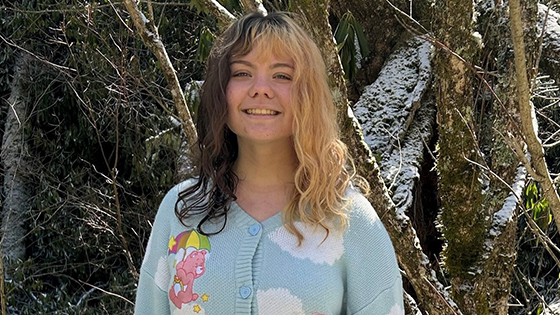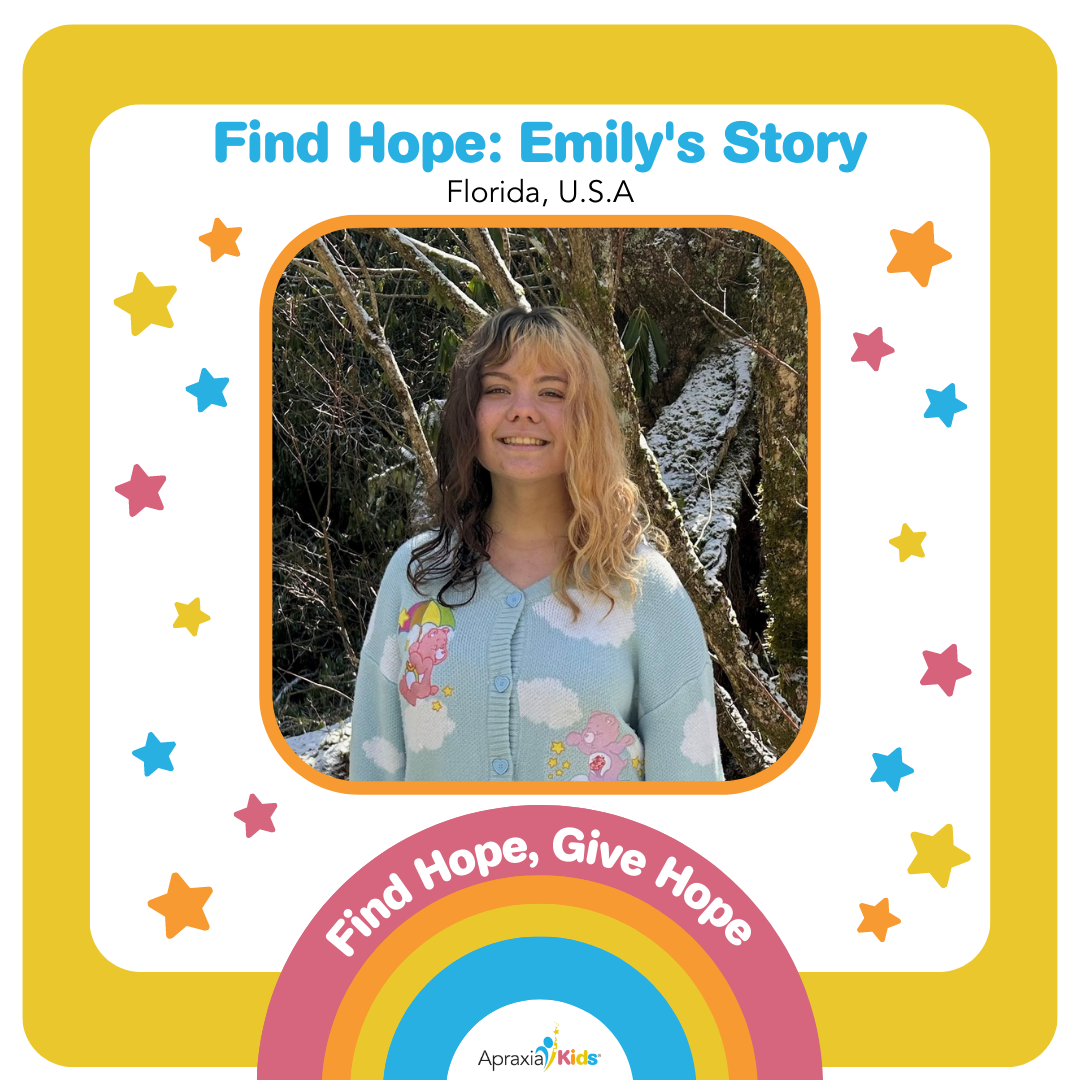
27 Jul I Could and You Can – by Emily Solis

Hi! My name is Emily Solis and I’m here to share a little bit of my story. I was diagnosed with apraxia when I was 22 months old. I couldn’t make coherent sentences or talk until I was four years old, and even when I could, my speech would be jumbled and inaudible for people besides my mom and dad. The doctors told my parents that I would never talk normally. I would be very frustrated when my other family and friends failed to understand what I was trying to tell them.
It took over six years of speech therapy for my words to start sounding normal to other people and I had to go through many other therapies like occupational therapy, food therapy, prompt therapy, and many others multiple times a week to function as well as I do now. I am now almost 16 and am enrolled in college at PHSC. I plan to major in cybersecurity and cyber warfare and minor in psychology. I am an honor roll student at DECA and am active in my school’s productions.
Now with much hard work, people I meet don’t even know I have apraxia unless I tell them. Though sometimes my words still blend together when I’m excited and I accidentally skip words in my sentences, I can proudly say apraxia no longer affects my day-to-day life anymore. If I could give advice to another child struggling with what I did, it would be to stay strong and keep fighting. Don’t let anyone treat you differently or say that you can’t do things that other children can do. Apraxia is a part of who you are, but you are your own strong person who can do anything you set your mind to.
To families of a child with apraxia, keep supporting your child anyway you can. Try not to get frustrated with your child when they struggle to communicate because, believe me, it is beyond frustrating for us, too. Show patience, kindness, and love. There are so many resources, like Apraxia Kids, you can reach out to for support. You aren’t alone in this fight.
Be inspired by more stories today and learn about how you can Give Hope!
Visit, FIND HOPE, GIVE HOPE

Hi! My name is Emily Solis and I’m here to share a little bit of my story. I was diagnosed with apraxia when I was 22 months old. I couldn’t make coherent sentences or talk until I was four years old, and even when I could, my speech would be jumbled and inaudible for people besides my mom and dad. The doctors told my parents that I would never talk normally. I would be very frustrated when my other family and friends failed to understand what I was trying to tell them.
It took over six years of speech therapy for my words to start sounding normal to other people and I had to go through many other therapies like occupational therapy, food therapy, prompt therapy, and many others multiple times a week to function as well as I do now. I am now almost 16 and am enrolled in college at PHSC. I plan to major in cybersecurity and cyber warfare and minor in psychology. I am an honor roll student at DECA and am active in my school’s productions.
Now with much hard work, people I meet don’t even know I have apraxia unless I tell them. Though sometimes my words still blend together when I’m excited and I accidentally skip words in my sentences, I can proudly say apraxia no longer affects my day-to-day life anymore. If I could give advice to another child struggling with what I did, it would be to stay strong and keep fighting. Don’t let anyone treat you differently or say that you can’t do things that other children can do. Apraxia is a part of who you are, but you are your own strong person who can do anything you set your mind to.
To families of a child with apraxia, keep supporting your child anyway you can. Try not to get frustrated with your child when they struggle to communicate because, believe me, it is beyond frustrating for us, too. Show patience, kindness, and love. There are so many resources, like Apraxia Kids, you can reach out to for support. You aren’t alone in this fight.
Be inspired by more stories today and learn about how you can Give Hope!
Visit, FIND HOPE, GIVE HOPE
Credentials:
Hours of Operation:
Treatment locations:
Address:
,
Phone:
Email:
Overall Treatment Approach:
Percent of CAS cases:
Parent Involvement:
Community Involvement:
Professional consultation/collaboration:
Min Age Treated:
Max Age Treated:
Insurance Accepted:




